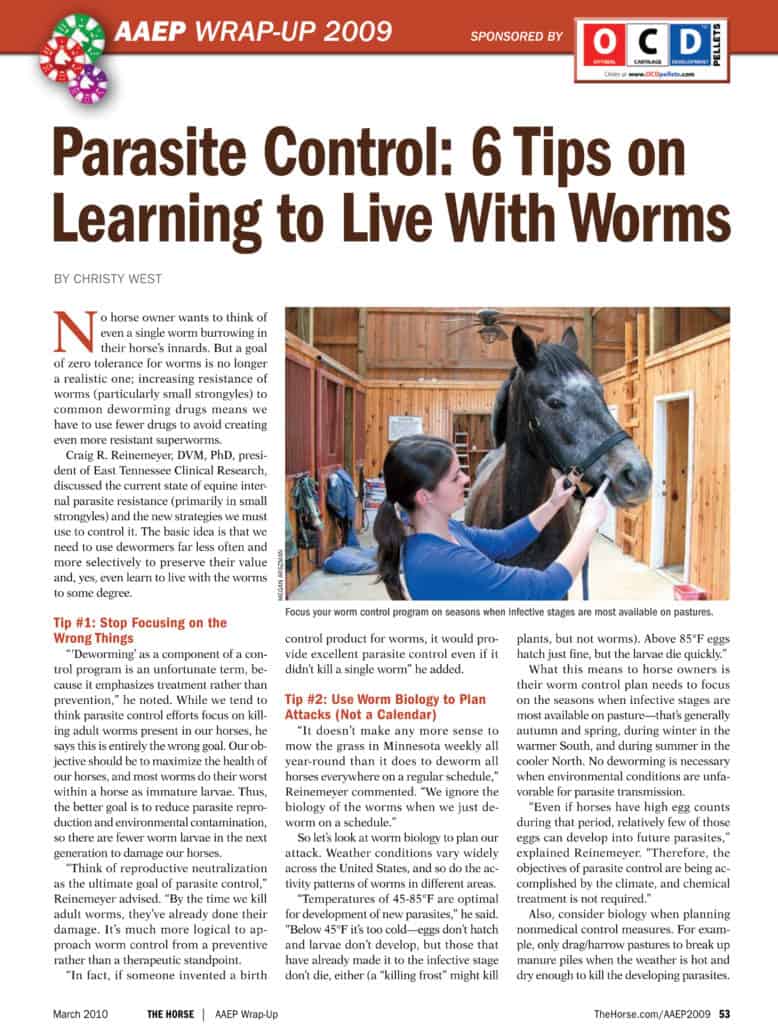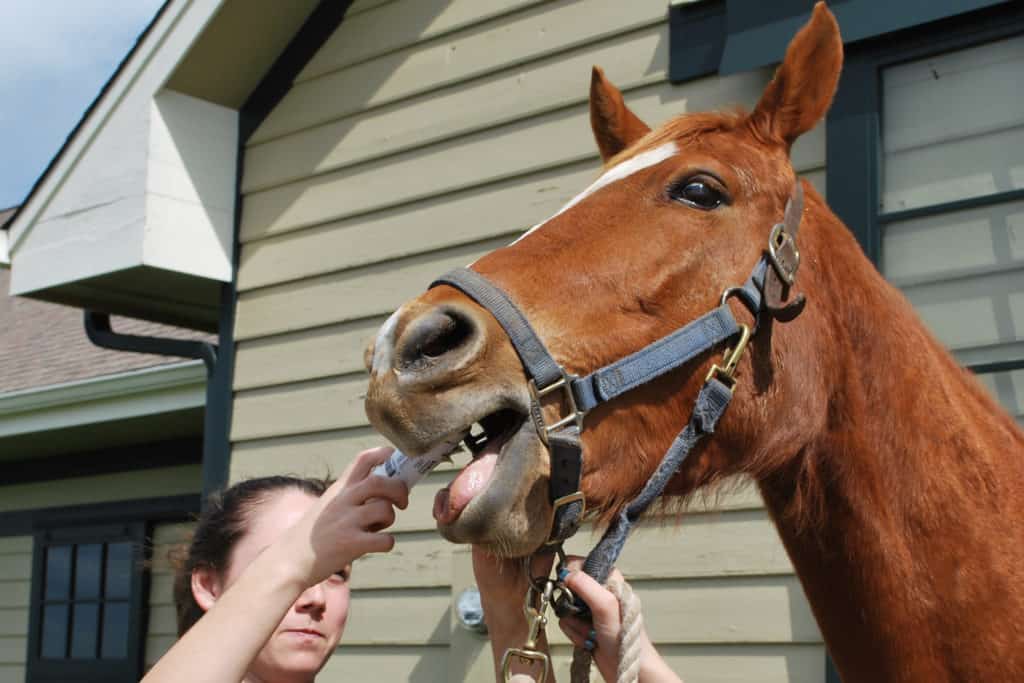

Deworming is an essential part of managing your horse’s overall health. This free fact sheet is a general guide to deworming your horse, including common parasites, dewormer options, parasite control via manure management, proper scheduling and more.
After a snowy winter, temperatures in Central Kentucky are seasonably warm once again. Grass is green, birds are singing, and equine parasites are stirring back to life. This is the time of year when horse owners and farm managers become aware of worms and make plans to combat them.
Vaccination and deworming are an integral part of horse health care routines, according to respondents of a recent survey, but only a fraction of owners consult their veterinarians when it comes to parasite control.
The findings are
A horse owner’s age is a major predictor in how involved they will be in the horse industry, according to a new survey.
The findings are part of the American Horse Publications online nationwide survey, conducted from Oct. 15, 20
Horses with allergic diseases, like recurrent airway obstruction, might have fewer parasites.
Predatory fungus Duddingtonia flagrans might be a viable option for the biological control of infective larvae of small strongyles, researchers noted in a recent study.
Adult small strongyles residing in a horse’s large in
The thought of your new foal becoming infected with worms is a bit too much to bear for many horse owners. All it takes is one face-to-face meeting with a squirmy white roundworm, the type of parasite most common in horses under two years of ag
In its first 10 months of operation, a group known as the Colorado Horsecare Foodbank has helped keep more than 100 horses with their owners by providing feed and other equine services, giving owners under financial duress a reprieve from the w

No horse owner wants to think of even a single worm burrowing in their horse’s innards. But a goal of zero tolerance for worms is no longer a realistic one; increasing resistance of worms (particularly small strongyles) to common deworming drugs means we have to use fewer drugs to avoid creating even more resistant superworms. (Presented at the 2009 AAEP Convention)
If you read the title of this article and said, “WHAT?!?” don’t worry–you’re not alone! No horse owner wants to think of even a single worm burrowing in their horse’s innards. But a goal of zero tolerance for worms is no
Contrary to common belief, older horses do not carry higher worm burdens than their younger counterparts, said Oklahoma State University veterinarians. “Despite the belief that older horses are more susceptible to internal
Horses with Cushing’s disease tend to have higher fecal egg counts than healthy horses.
Numerous research papers and presentations over the last several years have noted that internal parasites in horses are growing more resistant to the deworming drugs (anthelmintics) we have available. A study of European horses presented at the

This hour-long video presentation features advice on identifying and managing resistant parasites.

This hour-long video features the most up-to-date information on managing anthelmintic-resistant ascarids, how to recognize the problem, what to do if you have resistant ascarids on your farm, and how to avoid developing resistant parasites.
Mariana Ionita, DVM, PhD, is no stranger to the Gluck Equine Research Center. A resident of Romania, Ionita has been a visiting scientist in the Parasitology program four times since 2006 and completed her fourth visit to the Gluck Center at the end of August.
Ionita is part of the Faculty of Veterinary Medicine of Bucharest in Romania, where she is a lecturer and teaches animal biology
Stay on top of the most recent Horse Health news with
"*" indicates required fields